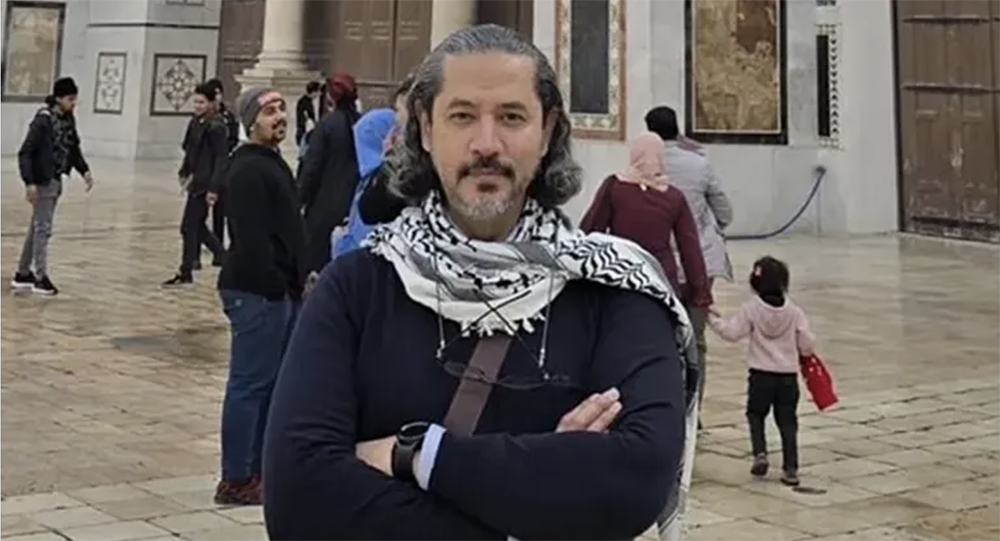POMED Event Highlights:
“Politics of Aggression: Turkey’s Foreign Policy and Its Democratic Demise”
October 21, 2020
Watch the full event here.
Turkey’s aggressive foreign policy is destabilizing its neighborhood and deepening the country’s regional isolation. This approach is a departure from Turkey’s traditional way of dealing with the region and is in many ways a product of President Recep Tayyip Erdoğan’s consolidation of power: his sidelining of institutions and of the diplomatic process and his turn to populist nationalism to manufacture public support. On October 21, POMED’s Merve Tahiroğlu moderated a virtual discussion with experts Sinem Adar of SWP, Alan Makovsky of the Center for American Progress, and İlke Toygür of Elcano Royal Institute on the state of Turkish foreign policy and its relationship to Turkey’s democratic backsliding. Below are some of each speaker’s key points, which have been edited for clarity.
Sinem Adar:
- Military operations abroad have hardly been absent in Turkish history. But the current moment represents a foreign policy watershed in that Turkey is daring to engage in military conflicts on multiple fronts simultaneously.
- After the 2016 coup attempt, political actors on the far right and far left entered the state bureaucracy and brought a more hawkish approach to foreign policy. The coup attempt also intensified Turkey’s perception of being isolated from its traditional Western allies, who did not unequivocally denounce the coup. And the perception that U.S. hegemony is in decline convinced Ankara that it has an opportunity to reposition Turkey as a regional hegemon—and that using hard power is the right way to do so.
- Turkey’s military capabilities have improved significantly in the last decade while its diplomatic capabilities have weakened. There is a vicious cycle: the more Turkey feels that it is not supported by the West, the more it isolates itself diplomatically and resorts to military power, which increases its isolation.
- Turkey’s pro-government elites benefit ideologically from a militaristic foreign policy; elites in the defense and construction industries benefit economically.
- Among the Turkish opposition, there is growing discontent over Erdoğan’s foreign policy and Turkey’s damaged international reputation. The public is polarized over the use of hard-power methods in foreign policy. But the debate is extremely confined because the media landscape is heavily controlled by the ruling party. Discussion in the alternative media takes place in polarized echo-chambers. Dissent exists but is heavily suppressed.
Alan Makovsky:
- For decades Turkey’s foreign policy was defensive, typified by Ataturk’s notion of “peace at home, peace abroad.” Generally, the Turkish military was far more focused on keeping order at home than on adventurism abroad.
- Today, the Turkish government wants to project an aura of recapturing the Turkish glory of the Ottoman Empire era and sees itself as a natural leader for the Middle East and Islamic world. This idea has widespread appeal in Turkey.
- Based on opinion polls, the Turkish public is quite ambivalent about recent military interventions and Erdoğan’s aggressive proclivities. But Erdoğan’s authority is now essentially unassailable, including over the media and, it appears, the military, and repression has muted criticism of his policies.
- As NATO is supposed to be an alliance of democracies, it is appalling that the United States has largely remained silent in the face of Turkey’s egregious human rights abuses. We have to call out a NATO member on clear violations of democratic norms and to focus our efforts on modifying that behavior.
- The United States should make human rights a key element of its Turkey policy—for the sake of our values and for the many Turkish citizens who are committed to democracy.
İlke Toygür:
- Turkey’s democratic demise has been an important factor in its worsening relations with the EU. From Europe’s perspective, Turkey’s 2018 transition to a presidential system was particularly significant. The lack of checks and balances in this new system weakened Turkey’s democratic credentials. It also removed many of the institutions and interlocutors with whom European officials were accustomed to interacting on a daily basis.
- The presidential system has also led to the intense personalization of foreign policy under Erdoğan. This poses additional challenges for the Turkish-EU relationship.
- Whatever the intentions are, the methods Turkey is using are not the way to go. Turkey’s claims regarding issues such as the status of Cyprus and exclusive economic zones should be on the table. But how Turkey is asserting these claims is leaving it very much alone in the international arena.
- Part of the problem is that the EU seems to be moving to a more transactional, as opposed to a values-based, relationship with Turkey. In EU policies, we see debates about how to respond to Turkey’s aggressive foreign policy, but we see no reference to Turkey’s democratic backsliding.
- There is a huge interdependency between Turkey and the EU. It is better if this relationship is based on rules and principles. The recent tensions in the East Med show that the EU does not have the luxury for the status quo to continue.
Photo Credit: POMED



